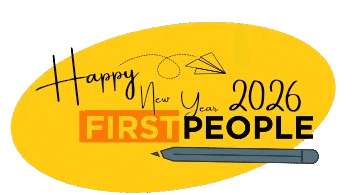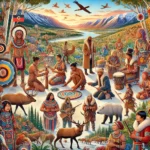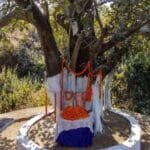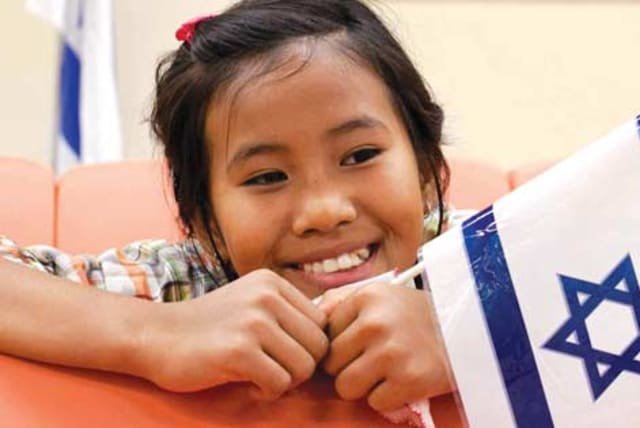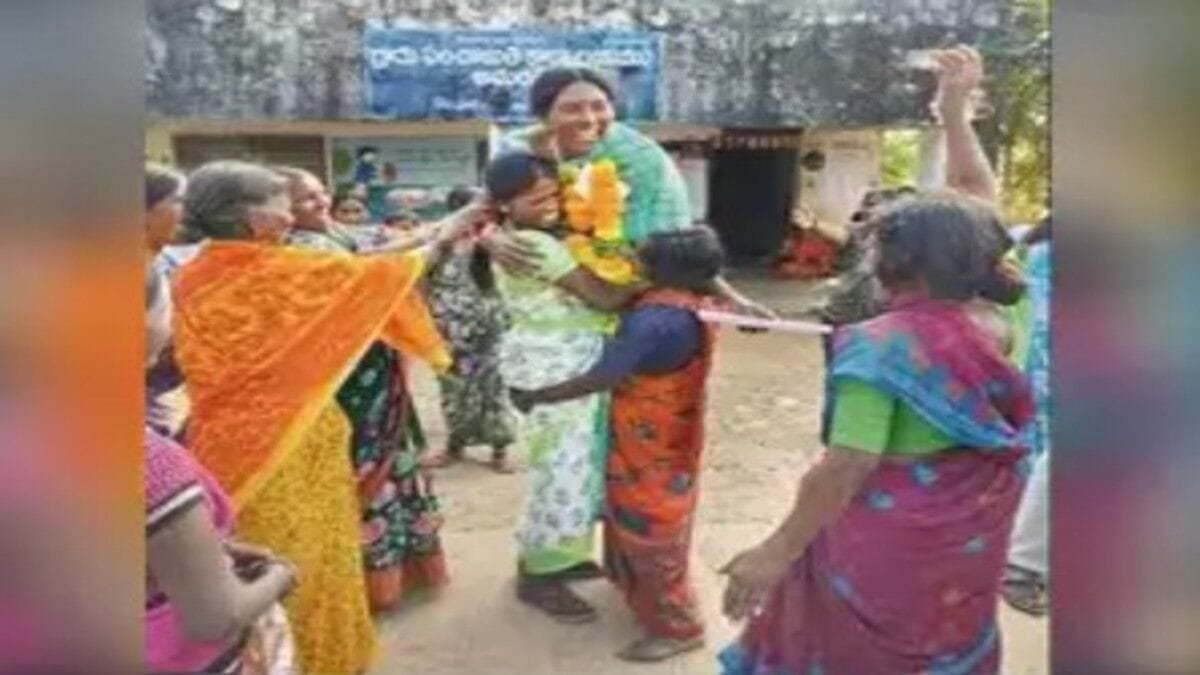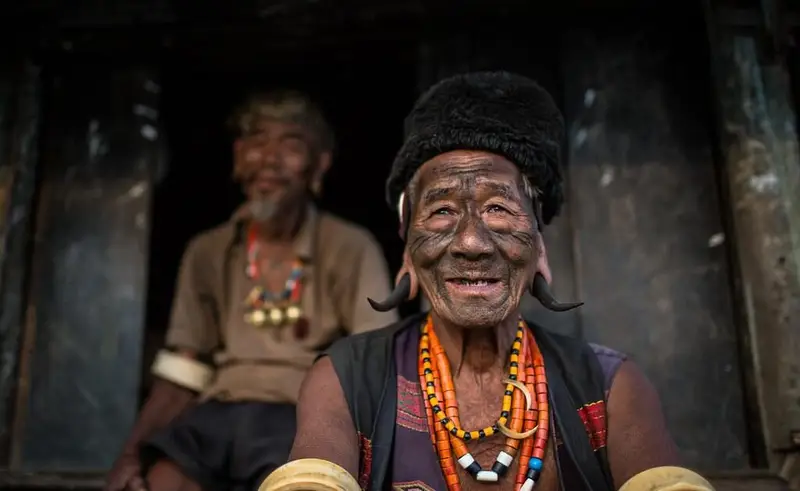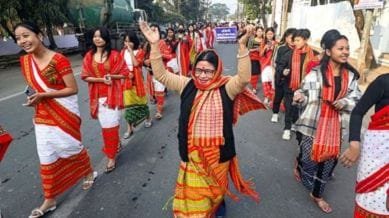The connection of the Chin, Kuki, and Zo communities in India with the “lost tribes of Israel” is a fascinating topic that has been a subject of interest both culturally and politically. Additionally, the recent conflict in Manipur involving these communities adds complexity to their identity and socio-political landscape. Here’s an overview and analysis of these aspects:
- The Concept of the “Lost Tribes of Israel”
The idea of the “lost tribes of Israel” originates from the dispersion of the Ten Tribes of Israel following the Assyrian conquest of the Kingdom of Israel in the 8th century BCE. Many groups worldwide have since claimed descent from these tribes, with different communities asserting their historical and spiritual connections to the Jewish people. Among these communities are the Bnei Menashe in northeastern India, particularly within the Chin, Kuki, and Zo groups.
The Bnei Menashe claim to descend from the Tribe of Manasseh, one of the Ten Lost Tribes. This claim has been supported by religious narratives, cultural practices, and oral traditions that align with some ancient Jewish customs, though there are differing perspectives on the historical accuracy of these claims.
- The Identity of the Chin, Kuki, and Zo Communities
The Chin, Kuki, and Zo (also referred to as Mizo) communities reside mainly in India’s northeastern states (particularly in Manipur and Mizoram), as well as in Myanmar and Bangladesh. Though they identify as distinct groups, they share linguistic, cultural, and traditional similarities. Over the last few decades, segments of these communities, identifying as Bnei Menashe, have been seeking formal recognition as part of the Jewish diaspora.
This aspiration led to the Israeli government allowing some members of the Bnei Menashe to immigrate to Israel after conversion processes. Since the early 2000s, hundreds from these communities have moved to Israel, fostering a sense of dual identity that connects their heritage with both Jewish and indigenous traditions.
- Religious and Cultural Evidence of Jewish Ancestry
Proponents of the Bnei Menashe’s Israelite ancestry cite various religious and cultural practices that appear to echo Jewish customs. Examples include:
Observing rites similar to Passover, such as sacrificing animals during significant festivals.
Practicing purification rituals akin to the mikvah (Jewish ritual bath).
Using certain prayers and songs that bear linguistic similarities to Hebrew phrases.
Anthropologists and researchers have documented these practices, though mainstream historical scholars often view them as coincidental or as outcomes of cultural contact rather than evidence of Israelite descent.
- Challenges in Recognition and Controversy
The claim to Israelite heritage has met mixed responses. While some Jewish communities and rabbinic authorities recognize the Bnei Menashe as a lost tribe, others view the narrative with skepticism due to the lack of historical or genetic evidence linking them definitively to ancient Israel.
There are also social and political dimensions to this recognition. The move of some Bnei Menashe to Israel has occasionally spurred debates about the Israeli Law of Return, religious conversions, and ethnic identity. For members of these communities who remain in India, the lack of recognition can influence their socio-political rights and their standing within broader Indian society.
- The Manipur Conflict: Background and Tensions
The recent conflict in Manipur, a northeastern state in India, has centered around ethnic, religious, and political tensions between the Kuki-Zo groups (which include communities identifying as Bnei Menashe) and the Meitei people, the state’s ethnic majority. The conflict is rooted in a variety of factors:
Demand for Scheduled Tribe (ST) Status by Meiteis: The Meitei people, who primarily reside in the valley regions, have been pushing for recognition as a Scheduled Tribe under the Indian Constitution. This status grants certain affirmative action benefits, including reservations in jobs, educational institutions, and land ownership rights. However, the Kuki-Zo and other hill tribes fear that if the Meitei gain this status, it could further marginalize them economically and socially.
Land and Resource Competition: Land ownership laws in Manipur restrict valley residents (primarily Meitei) from purchasing land in hill areas, which are predominantly inhabited by tribal groups like the Kukis and Zos. The Meiteis’ push for ST status is perceived by the hill tribes as an attempt to gain access to hill lands, thereby threatening their territorial and cultural autonomy.
Ethnic Tensions and Violence: These grievances escalated into large-scale violence in 2023, leading to clashes, destruction of property, and a humanitarian crisis that has displaced thousands. The Kuki-Zo people have faced attacks in their communities, while Meitei neighborhoods have also experienced destruction and unrest. In response, the Indian government deployed paramilitary forces, yet the tensions remain high with mutual distrust on both sides.
- Impact of the Conflict on Bnei Menashe Identity
The Manipur conflict has also affected members of the Bnei Menashe community in India, who are drawn from the Kuki-Zo ethnic groups. The unrest has led to:
Disruption of Religious and Cultural Practices: Amid the violence, many Bnei Menashe have found it challenging to observe their unique blend of Jewish and indigenous traditions. The lack of security, displacement, and fear have limited the community’s ability to maintain its religious practices.
Social Identity Crisis: The violence has also intensified the complex identity issues faced by the Bnei Menashe. While they identify with both Jewish and indigenous cultures, their inclusion in either group remains partial. Some Bnei Menashe feel marginalized within the broader Jewish diaspora, while in India, their desire for a distinct identity places them in tension with regional political structures.
Threats to Migration and Integration into Israel: The ongoing violence has slowed migration processes to Israel for Bnei Menashe members wishing to join family and community members who have already made aliyah (immigration to Israel). This situation creates a limbo for those who aspire to leave, as they face dangers both in their homeland and in the challenges of resettling abroad.
- The Future: Prospects for Peace and Reconciliation
The path toward resolving the conflict in Manipur requires addressing both immediate humanitarian needs and long-standing political grievances. Key aspects include:
Government Intervention: The central government’s response, including deployment of forces, has thus far managed to contain the violence to an extent. However, more comprehensive solutions, such as equitable policies for land rights, are needed to ensure lasting peace.
Autonomy and Identity Rights: Granting greater autonomy to the hill tribes, including the Kuki-Zo, could address some of their fears of cultural erosion and economic marginalization. Proposals for local governance that include fair representation of all groups could also mitigate ethnic tensions.
Cultural Reconciliation Efforts: Community leaders from both the Meitei and Kuki-Zo sides have initiated dialogues to ease inter-ethnic tensions. Programs promoting cultural understanding, economic cooperation, and inter-group dialogue could foster an environment where diverse identities are respected.
Support from International Communities: Jewish organizations and human rights groups have shown interest in the Bnei Menashe’s well-being during the conflict, offering aid and raising awareness about their plight. Such support can amplify the need for a peaceful resolution and safeguard the rights of ethnic minorities.
Conclusion
The identity and struggles of the Chin, Kuki, and Zo people in India embody the complexity of ethnic heritage, religion, and modern political boundaries. The Bnei Menashe, through their unique connection to the lost tribes of Israel, showcase how cultural and religious identities adapt over centuries, sometimes converging in surprising ways.
The ongoing conflict in Manipur highlights the importance of peaceful coexistence, and the hope is that with constructive dialogue and policy reforms, communities like the Bnei Menashe can continue their cultural and spiritual journey within a more stable and inclusive society.
